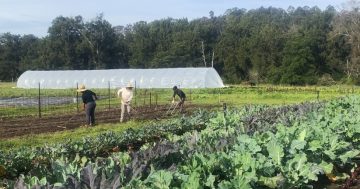 Moves by Governments to restrict exports usually serve to aggravate price rises and increase food insecurity according to the latest Insights report published by the Australian Bureau of Agricultural and Resource Economics and Sciences (ABARES).
Moves by Governments to restrict exports usually serve to aggravate price rises and increase food insecurity according to the latest Insights report published by the Australian Bureau of Agricultural and Resource Economics and Sciences (ABARES).
Releasing its report Food Security: the impact of export restrictions, Executive Director of ABARES, Jared Greenville said the Russian invasion of Ukraine, poor growing conditions in major exporter countries, and the impacts of the COVID-19 pandemic had all contributed to high global food grain prices.
Dr Greenville said this raised food security challenges globally, with real food prices increasing 65 per cent in the past two years – the highest level since October 2012.
“Often when there is an increase in world food prices, governments respond by placing export restrictions on their own commodities,” Dr Greenville said.
“The aim is to moderate domestic prices and ease the burden on their own populations, which is understandable in the circumstances,” he said.
“However, export restrictions reduce the supply of food in world markets and increase prices, creating greater incentives for other countries to restrict exports.”
Dr Greenville said that for this reason, widespread export restrictions had a negative impact on global food security and hurt the poorest people who were already struggling to put food on the table.
He said around 24 countries had introduced export restrictions since food prices began to rise.
“Removing export restrictions, or agreements to avoid implementing them in the first place, can help to ensure food is more available globally and increase the stability of food supplies,” ABARES’ Greenville said.
“Short-term humanitarian aid, market transparency and cutting trade barriers all help to alleviate the stresses of global food insecurity.”
He said free and open trade through multiple trading relationships gave households options that help limit the risk of food insecurity.
ABARES’s 11-page Report can be accessed at this PS News link.











